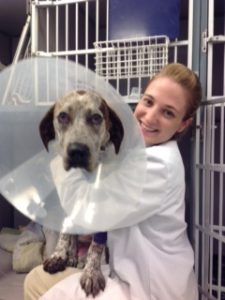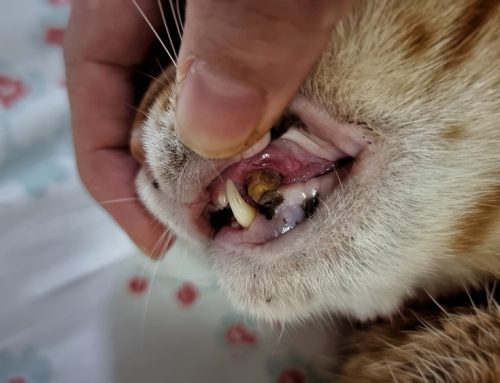Meet Fern. Fern is a fun-loving pointer mix puppy who ate some grapes. Little did Fern know, this dietary indiscretion would land her in the hospital.
 It has been an urban legend that has floated around the internet for some time, but has been proven to be a legend no more. The reason why grapes (and their dried cousin, the raisin) are toxic to pets is still unknown. However, pesticides, heavy metals, and fungal contaminants have all been eliminated, so the likely culprit is something in the composition of the grape itself. Both commercially-grown and homegrown grapes have caused illnesses, so there is no distinction there either.
It has been an urban legend that has floated around the internet for some time, but has been proven to be a legend no more. The reason why grapes (and their dried cousin, the raisin) are toxic to pets is still unknown. However, pesticides, heavy metals, and fungal contaminants have all been eliminated, so the likely culprit is something in the composition of the grape itself. Both commercially-grown and homegrown grapes have caused illnesses, so there is no distinction there either.
Even small amounts of grapes can cause severe illness, so it is important to act quickly if you suspect your pet has ingested any grapes. Any age, breed, or gender can be affected. The most serious complication from grape ingestion is acute kidney failure, which can lead to death.
Please call your veterinarian immediately to ensure that they are able to assist you in assessing your pet’s current status and determining the appropriate next steps.
Symptoms
- vomiting
- diarrhea
- decreased appetite
- lethargy
- abdominal pain
- dehydration
- oliguria (producing only a little urine)
- anuria (producing no urine)
- muscle weakness
- kidney failure & death
Treatment
If your pet has ingested grapes, it is critical that you go to a veterinary facility immediately. Vomiting can be induced and activated charcoal can be administered to absorb toxins that may be in the pet’s stomach. Your pet may likely also be on IV fluids for at least 48 hours. If urine is not being produced, your veterinarian may need to put your pet on dialysis in order to support the kidneys. Blood work and urinalysis may also be monitored.
Diagnosis
Without any explicit evidence (pieces of grapes in the pet’s vomit/diarrhea), a diagnoses is often based on the pet owner’s account of the event and any symptoms the pet is experiencing. It is important that you provide as much information as possible. The amount of grapes and when the grapes were ingested are important to determine the level of risk. If you are able to collect any vomit or diarrhea your pet produces and bring it in with your pet, it may be of help to the veterinarian.
Although a toxic substance does not show up definitively on a blood test, blood levels associated with the kidneys gives us an idea about how they are functioning and if the kidneys are being affected. Blood work will check for increased blood calcium, phosphorus, and creatinine levels, as well as other values. A series of urinalysis may also be run to check for the presence of glucose and/or protein to monitor how the pet is doing.
Prevention
It is important to keep grapes and raisins out of reach from pets. Make sure that friends and family are aware of how toxic this seemingly harmless food can be. If young children are eating either of these, keep pets separated from the area and check for any dropped pieces before allowing the pet to join. Keeping in mind that some pets can eat grapes without any harm, and some can develop life-threatening problems, it is best not to take the risk. Even if a pet has consumed grapes before and has been fine, it does not guarantee that he/she will not get sick if they eat them again.



